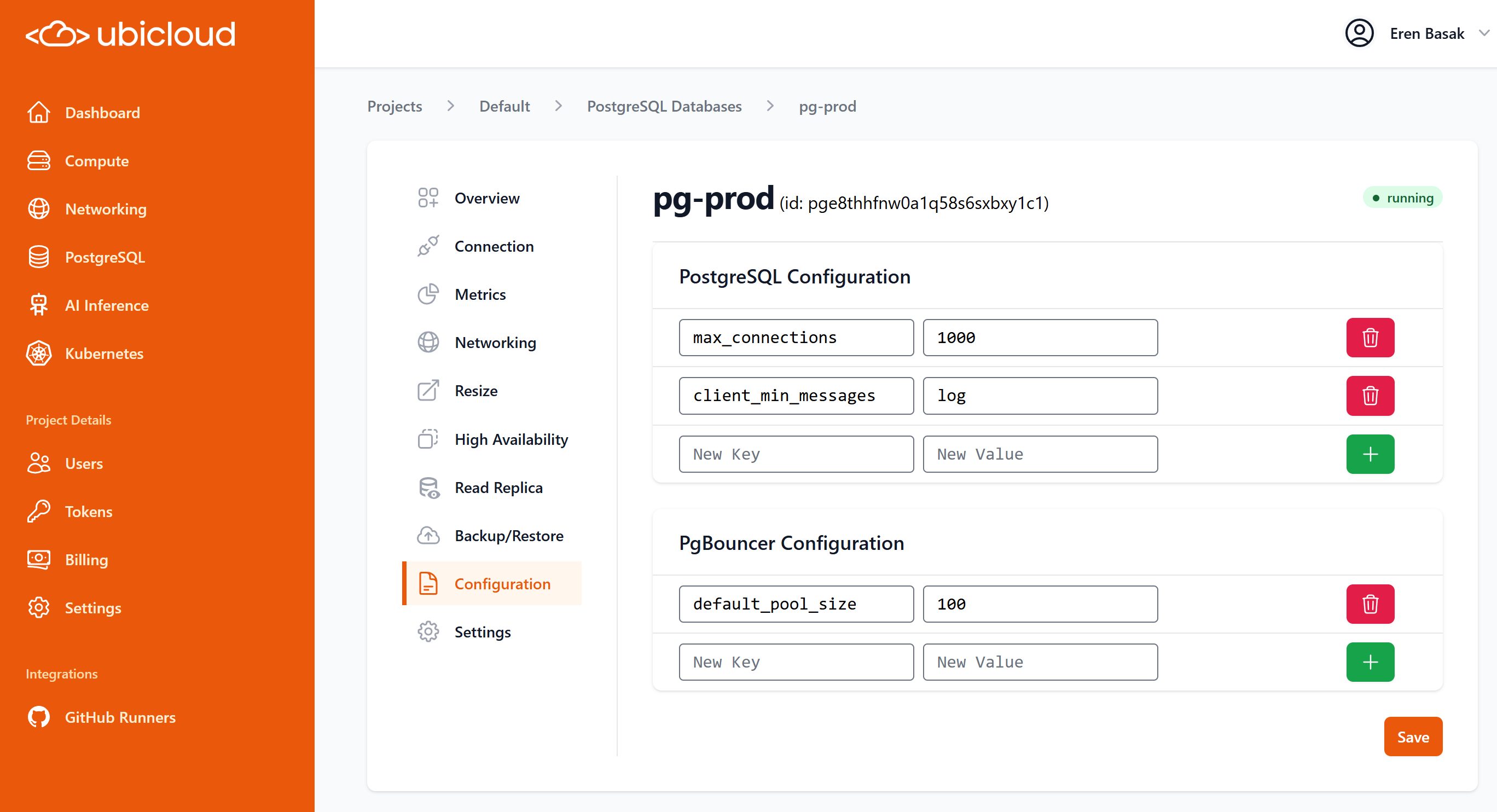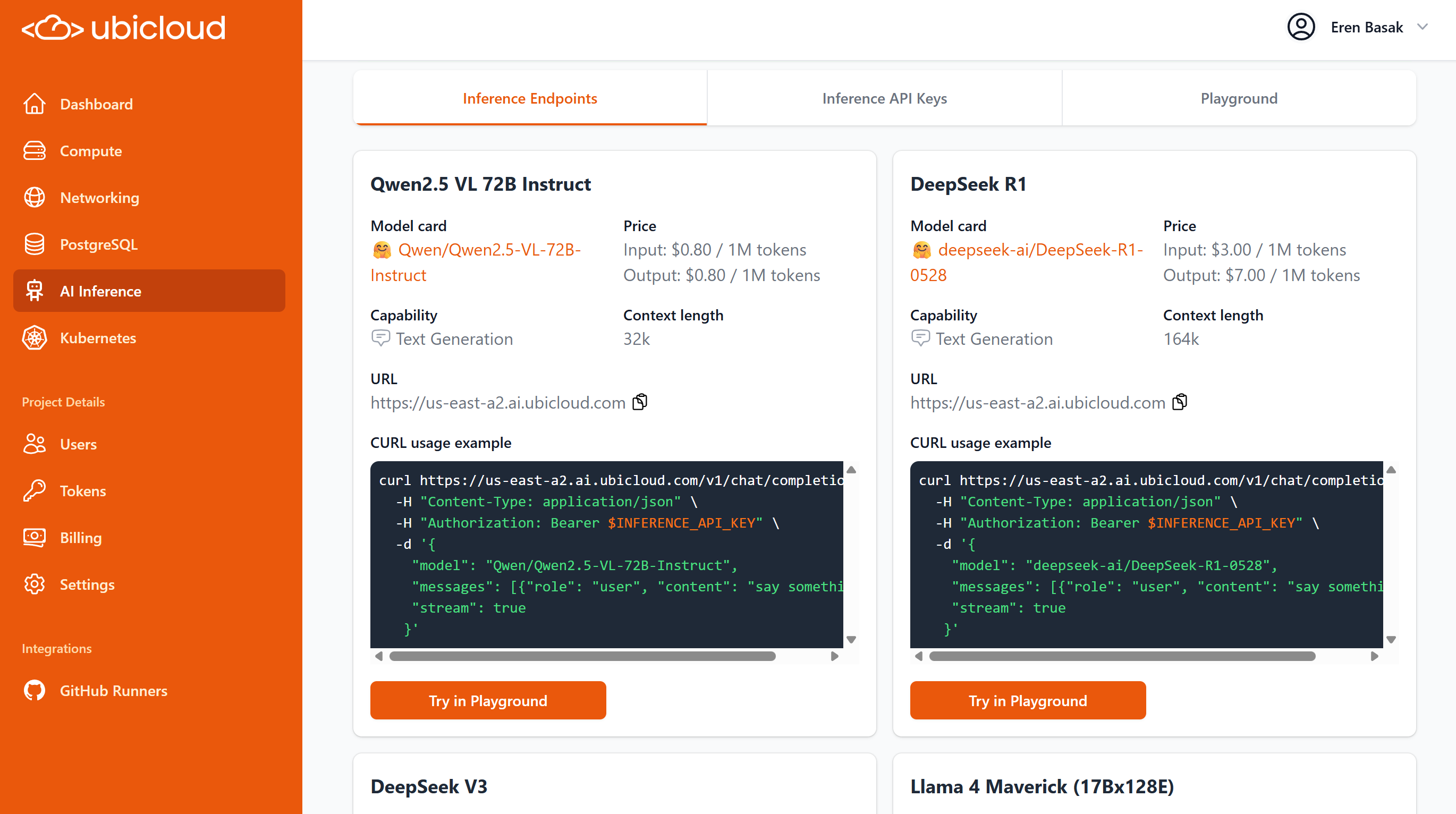Managed PostgreSQL
PostgreSQL Settings via Console and API
You can now manage your PostgreSQL and PgBouncer configurations directly through the Ubicloud console, API & CLI. This feature allows you to view and edit settings from yourpostgresql.conf and pgbouncer.ini files, making it easier to fine-tune your database performance and connection pooling without manual file edits. The new UI provides a simple key-value editor with validation to prevent misconfigurations.

Granular API
To provide deeper insights into your database scaling activities, the PostgreSQL API now returns both thecurrent and target sizes for your VM and storage volumes during a resize operation.
More Metrics
We’ve enhanced the metrics dashboard to displaysoftirq CPU usage, offering a more complete picture of your server’s performance and helping you identify potential I/O bottlenecks.
Ubicloud Kubernetes
Expanded CLI Functionality
Managing your Kubernetes clusters from the command line is now more powerful. We’ve extended ourubi CLI with new commands to list, show, create destroy. These additions provide full CLI-based lifecycle management for your Kubernetes resources, streamlining automation and daily operations.
Additionally, you can safely retrieve the kubeconfig file for your cluster at any time, allowing you to connect to your cluster with kubectl or other Kubernetes tools without navigating to kubernetes dashboard.
Built-in Persistent Volume Support with UbiCSI (preview)
Ubicloud now features a full implementation of the Container Storage Interface (CSI) for workloads that require persistent volumes (PVC) on our native infrastructure. This enables robust, standards-compliant, and dynamic persistent storage for containerized applications within Kubernetes. The new CSI driver manages local-disk-backed volumes with idempotent operations for reliable volume management.Metrics Server Installed by Default
New Kubernetes clusters now come with the Kubernetes Metrics Server installed automatically. This provides resource usage metrics for pods and nodes out-of-the-box, enabling you to use tools likekubectl top and Horizontal Pod Autoscalers (HPA) without any additional setup.
Free Trial for Premium GitHub Runners
All new Ubicloud installations now receive a 7-day free trial of our premium GitHub Runners. This allows you to experience the performance benefits of our more powerful runner tiers at no cost. A badge in the UI will indicate your eligibility for the free upgrade.New AI Model Available
TheQwen2.5-VL-72B model is now available for AI inference workloads. This powerful, 72-billion parameter vision-language model is ideal for a wide range of multimodal tasks. Billing is set at $0.80 per million tokens for both input and output.
